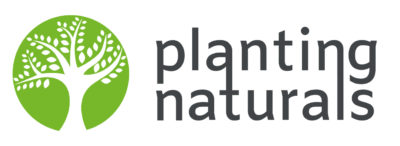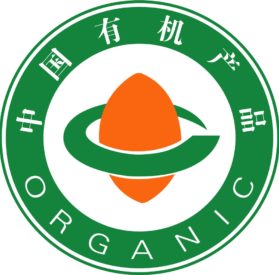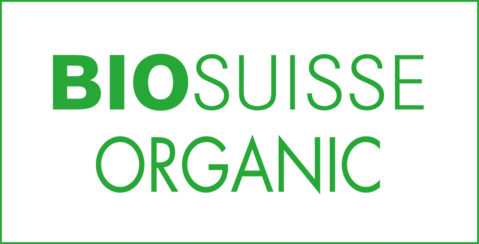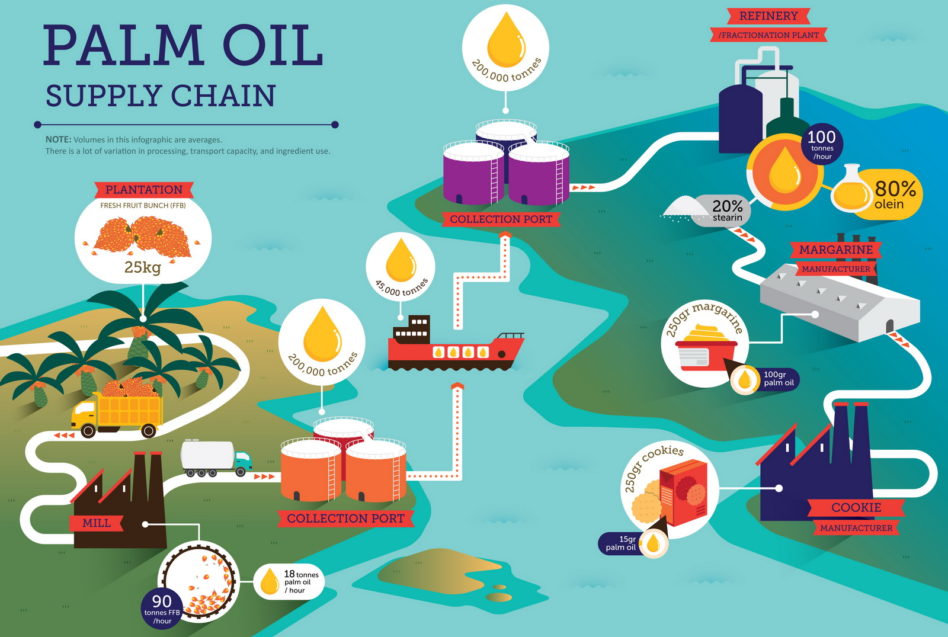At Planting Naturals we believe in doing things right, and are serious about our sustainability values. Here is a guide to understanding our sustainable products and relevant certification standards.
Why Choose Sustainable Palm Oil?
It's no secret that much of the palm oil on the market is unsustainable, often causing deforestation and biodiversity loss. But it can, and always should, be grown in an harmonious manner – for both people and environment – and it is around this that we have based our business practices.
Planting Naturals works with various certification standards and has an holistic approach to the production of sustainable palm oil. First, our vertically integrated supply chain is 100% organic. Second, our sustainability principles are well integrated into all operational processes – concentrating on three core areas: ecology, economy and social. This helps to protect the environment and its biodiversity, to provide farmers with fair pricing and regular training, and to improve the livelihoods of the surrounding communities.
We only source our crop from our own sustainable and organic managed plantations in Sierra Leone - from Goldtree Sierra Leone (SL) Ltd. - as well as working closely with a network of over 9,500 smallholder farmers. All Fresh Fruit Bunches (FFBs) are then processed at the Goldtree Mill - our palm oil mill in Sierra Leone. The mill at Goldtree SL became RSPO certified in July 2021.
This means that when purchasing our palm oil products, you can be assured that you are always receiving the highest quality oil that is produced with the highest integrity – supporting a new vision, and model, for growing oil palm.

What is the Purpose of Certification Standards?
All of our palm oil production is both internally and independently audited in order to continuously monitor, verify and improve upon our principles; ensuring it meets our own standards and those set out by international organisations such as the Roundtable on Sustainable Palm Oil (RSPO). As a “global, multi-stakeholder initiative on certified sustainable palm oil products”, RSPO seeks to “promote the growth and use of sustainable palm oil through cooperation within the supply chain and open dialogue between its stakeholders”.
Our RSPO commitment is in addition to our own desire to be fully organic certified. In this way, we believe both ‘sustainable’ and ‘organic’ certifications work well together in providing assurance that our products meet only the highest standards of health, ethics, and quality.
EU Organic and RSPO are the main standards we work with, and, when you see their labels, you know that it reflects a rigorous certification procedure – internally and externally audited – that is conducted on at least an annual basis.
RSPO puts the three pillars of sustainability - ecology, economy and social - at its heart and adopts stringent procedures to implement them – requiring an annual audit by a registered independent third-party certification body, and continuous improvement to its Principles and Criteria (P&C's). Across its pillars are seven principles with 169 indicators to monitor their status and progress.
Core elements of the RSPO's P&C's include:
- Strict protection of High Conservation Value areas,
- Policy of zero burning and no deforestation,
- Highest standards of workers' rights and well-being,
- Local employment and social development investment.
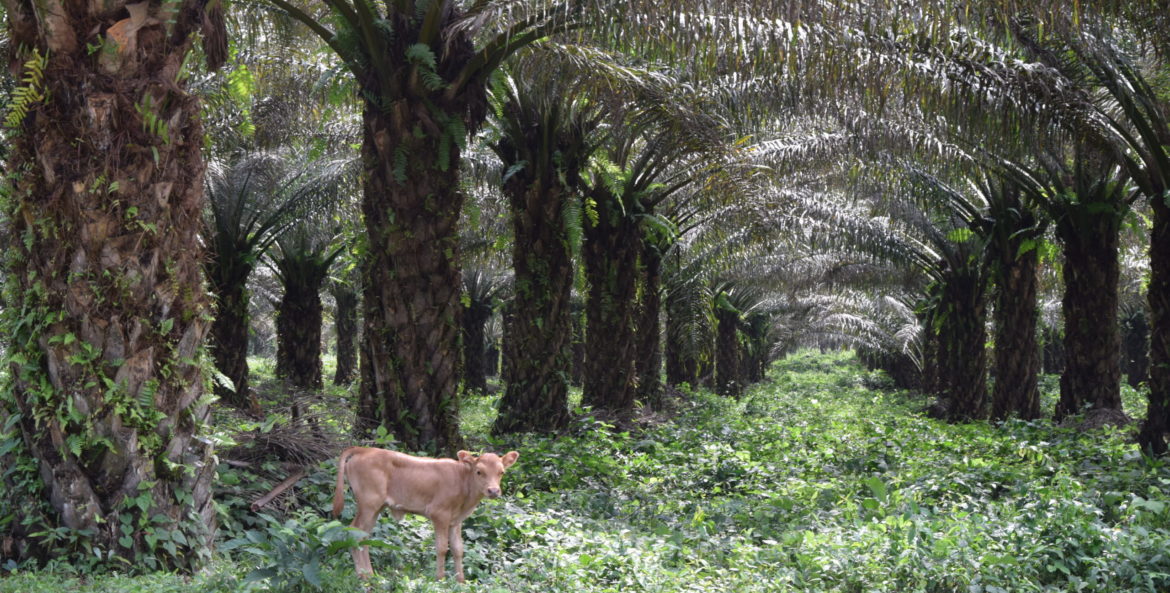
How are RSPO Standards Designed, Monitored & Ensured?
- Annual internal and external audits, conducted by inspectors from independent third-party certification bodies.
- The traceability of our palm oil - we strive for only Identity Preserved RSPO certification, as specificed by RSPO - to give full confidence in our supply chain. This means that for any RSPO certified palm oil we sell, 100% of it has come from a certified, sustainable source.
- Clear, fair, and implementable P&C's are applied across the industry, while also being appreciative of and taking into consideration the local contexts.
- RSPO enforces Remediation and Compensation for early infringements; this is a process whereby a company may need to compensate for any land clearing without enaging in the proper methods outlined by the RSPO prior to clearance.
- Suspension or expulsion from RSPO membership for serious and/or recent non-compliance.
- Progressive timescale towards full and comprehensive compliance, that ensures smallholder farmers are not excluded from the benefits of certification schemes.
- Continuous monitoring and feedback on standards, with 5 year updates on the P&C's to ensure the most rigorous, effective and appropriate certification standard possible.
What does the EU Organic standard mean in practice?
The EU Organic standard and the RSPO standard carry many similarities, given that they are both trying to achieve similar goals. That being said, there are still some differences between the two standards; the EU Organic standard in practice means:
- No chemical fertilisers, pesticides, or other artificial inputs,
- No Genetically Modified Organisms (GMOs),
- Working with nature to manage weeds, pests, and disease,
- Use of organic fertilisers to maintain health and biodiversity of the soil,
- Manual harvesting techniques,
- Fairness and integrity in the treatment of the workforce - covering wages, working hours and conditions, benefits, support and child protection.
Chinese National Organic Standard
Another organic standard that we are also certified under is the Chinese National Organic Standard, which is the standard used to regulate the production and trade of any organic products that enter the Chinese market. This is the most recent organic standard we have acquired to date, meaning that our sustainable, organic palm oil products are also able to be traded and sold within China under the organic classification. As is the case between the RSPO and EU Organic standard, there are equally many similarities between these two standards and the Chinese National Organic Standard, as all are aiming to accomplish similar goals.
Namely, some of the main aspects that are addressed by this organic standard are:
- Adherence to, and the protection of, the environmental quality of soils,
- Ensuring a good level of ambient air quality standards,
- Additionally, these air quality standards specify a maximum concentration of pollutants permitted in the atmosphere that the crops are grown in, to ensure the health and protection of the crops,
- No non-organic inputs are permitted, and the use of GMOs is prohibited in any ingredients, additives or processing aids used in the production of an organic product.
Tracing the Supply Chain
Understanding the palm oil supply chain is key to monitoring its integrity, and for any lables displayed on our products, it has been traced through every point along the supply chain. The image below illustrates how a sustainable palm oil supply chain looks like - click on the image to be taken to the RSPO's website for more detailed information on this.
How does the RSPO Supply Chain Certification (SCC) standard work?
- RSPO's "PalmTrace" ensures integrity across their supply chain.
- PalmTrace is the RSPO's traceability system for certified palm oil products; from the mill to the refinery, certified members of RSPO register their physical sales and processing activities of palm oil, palm kernel and its fractions, under the Identity Preserved, Segregated and Mass Balance supply chain models.
- By buying from Planting Naturals, you are assured that all elements of production and operations commit to stringent standards of ethics and sustainability.
- Monitoring occurs not just on our farms and in our mills, but throughout the transportation and refining process as well. Any subcontractors that are used have also been vetted and will be annually audited - if they do not possess their own Supply Chain Certification - to ensure all actors at all stages of production are they are upholding these standards.
Monitoring our own Supply Chain
For receiving fruit at Goldtree Mill the following procedure is always adhered to:
- Goldtree must record all purchases of fruit, including: the farmer's name, volume supplied, date supplied, location, and classification (e.g., organic, RSPO).
- Fruits are purchased only from the farmers who are included in the organic suppliers list and the volumes cannot deviate from projected volumes, which are based on the size of the farm and estimated yield.
- Upon arrival at the mill, the weighbridge operator weighs the truck and enters this information into the internal system.
- The truck carrying the FFBs is directed to the quality controller for a quality check of the fruits before offloading the truck in the designated area, ready for processing.
In addition to inspection of all organic farmers growing oil palm and of all harvested FFBs, for any batch of Crude Palm Oil (CPO) and Crude Palm Kernel Oil (CPKO) that leaves the Goldtree mill:
- All products are exported in flexitanks, which can only be used once, meaning that no contamination can occur. The flexitank is sealed after loading.
- The container will then be closed and sealed as well. All seal numbers will be mentioned on the shipping documents (the bill of lading). In accordance with EU regulations, the shipping documents will be explicitly linked to the container number.
- The shipping documents will describe: the container number, seal numbers, product description, product net weight, lot number, date of loading and other relevant statements.
- The product description must explicitly contain reference to the organic status of the product (e.g., organic crude palm oil) and state the name of the external certification body.
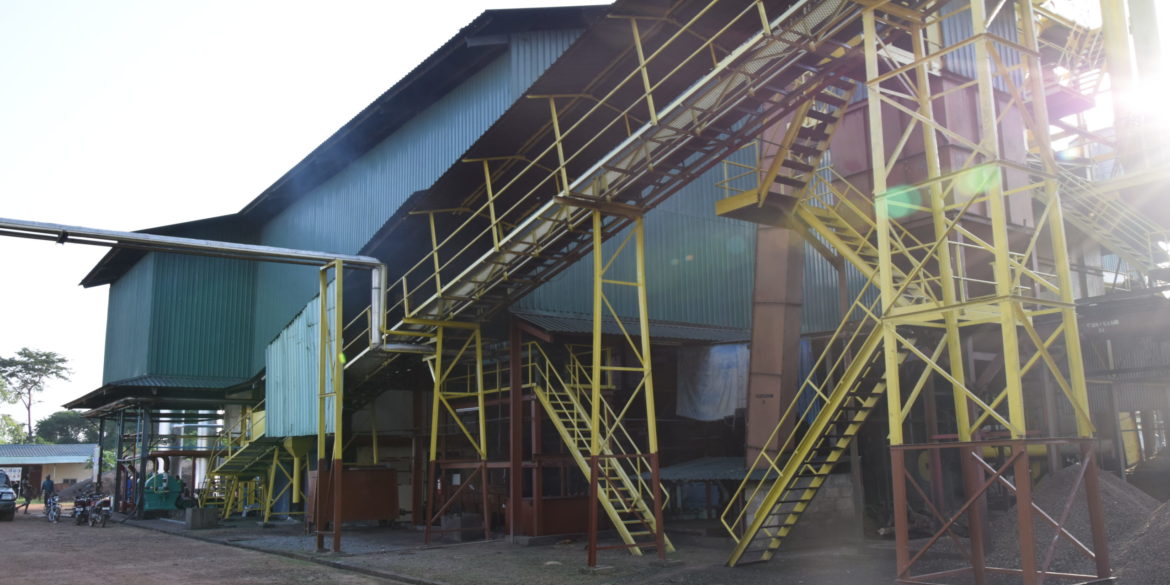
All of this means that certification accreditation by any international body is about much more than just a label. Planting Naturals is committed to ensuring the highest standards not just in our own company, but across the entire industry. In doing so, we are proving that palm oil can be grown for good.

